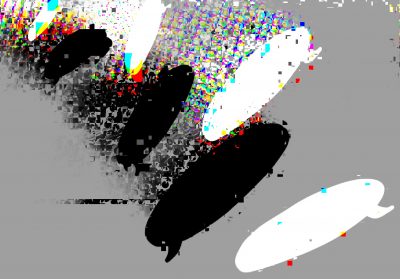When I began looking around for other articles related to my pitch for my column this week, I was honestly shocked at how little media coverage has been afforded to the decline of internet forums. The death of the webforum is not in doubt — a February 2020 piece in tech publication Engadget, for instance, attests that it is happening — but outside of that article most mention of the phenomenon is limited to websites like Quora and Reddit.
It is a shame that this ongoing phenomenon has received so little attention, because internet forums were an enjoyable and unique way to discuss topics on the internet. They were the bedrock of so many subcultures, especially gaming ones, and I was part of many of these groups.

Being 19 years old, the older end of “Generation Z,” there were only a few years in my life where webforums were still alive but I was old enough to write coherent posts for them by myself. This window of time, the early 2010s, was also when I began to really fall in love with video games and play them competitively.
The first game that I dedicated myself to was Mario Kart Wii, which I played religiously during my childhood. For whatever reason Nintendo gave this silly racing game very robust online multiplayer, making it easy and endlessly fun to race with strangers.
A lot of people came to appreciate the game. Enthusiasts gathered on the forum “mariokartwii.com,” which I spent many hours reading and posting on. Like any internet community, it had its fair share of issues, but it was still an enjoyable place to crack jokes, bond over our shared love of a video game, and help each other get better at it.
The forum was taken offline several years ago, and its eponymous web address is now a dead end. Mario Kart Wii is not a “dead game” in spite of its age, but any subculture losing a dedicated forum is a serious loss.
The beauty of a forum, beside nostalgic imagery like signatures, was the prolonged discussion. It was not uncommon for a large thread to receive new posts every day for several months or even years.
This is difficult for me to even wrap my head around now in an age of modern social media. Reddit threads are probably the closest relative to what forums used to have, but even those only last a few days tops before sinking into inactivity. Internet subcultures congregate on Discord too, but it is an instant-messaging chat service, so conversations do not last long there either.
Twitter has more permanence than Discord, at least, but its paltry character limit of 280 is a fraction of that of any webforum. I still use Twitter quite a bit, but this difference completely changes its character. Arguments always lack nuance because there simply is not room for qualifying your points.
Twitter hasn’t just made it harder for media subcultures, though. It has also been a key political force for several years to absolutely insane effect.
The website is a“firehose” of information, as culture writer Matt Pearce observed in a Los Angeles Times piece in March. Slogans, images, insults and comebacks rush at the user from all directions, making it addictive and strengthening the user’s pre-existing political convictions.
Much ink has already been spilled about former president Donald Trump and his Twitter, removed from the site two days after his supporters stormed the Capitol Building, but he really was the quintessential Twitter user. His posts ranged from meditations on Diet Coke to missives to his “haters” to propaganda, whipping up our culture to the breakneck speed that it still moves at.
When I reflect on web forums as they wither away, I remember a time when the world moved a bit slower, when you could actually hold a prolonged conversation with a stranger on the internet. Now we feel under a collective amnesia, our attention spans destroyed — even the headlines of a few weeks ago, like a new Kanye West album or the resignation of Andrew Cuomo — seem a lifetime away.



















































































































